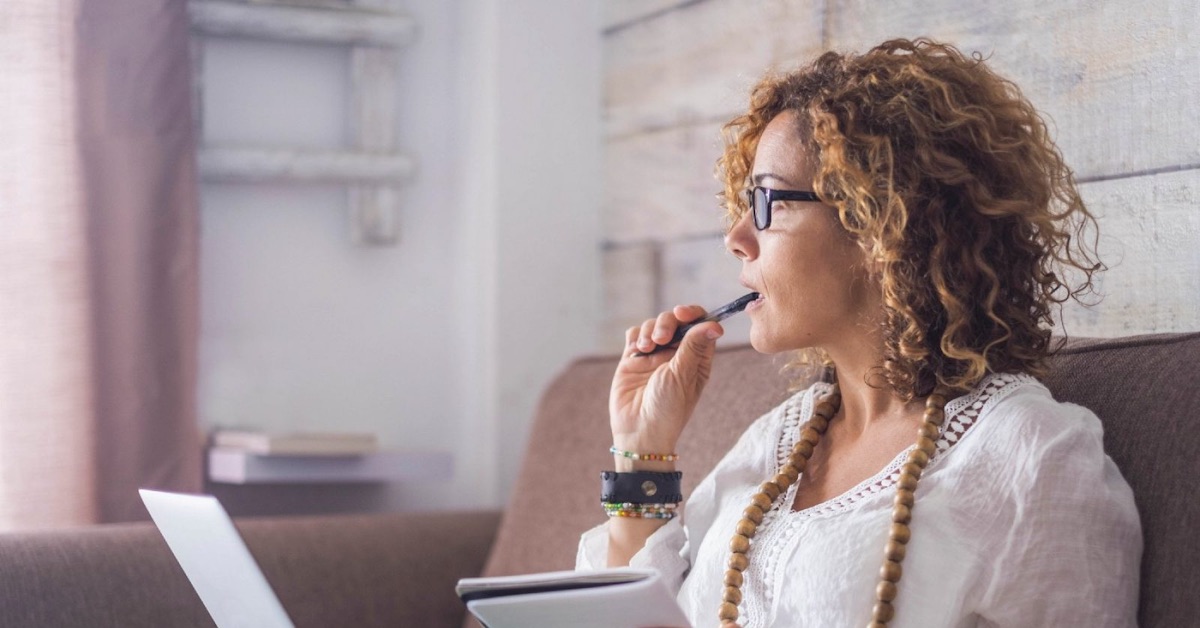Take Your Own Advice: A Note to Therapists on Self Care During COVID‑19

Sheri Krishenbuam, PhD
Clinical Director at Quartet
April 15, 2020
Mental health care providers are, by definition, dedicated to promoting health and wellness in their patients. Clinicians are trained to be able to sit with ambiguity, and bear witness to and hold patients’ pain, trauma and uncertainty. In order to best equip ourselves for this clinical work, we as clinicians must engage in our own personal and professional self-care practices to prevent distress and burnout.
The COVID-19 outbreak brings with it an added layer of complexity for mental healthcare workers, who may be experiencing their own stressors and anxieties related to the crisis. Some mental health providers working in health systems may still be relied upon to report to work (with safety protocols in place and an increasing reliance on teleservices) in order to provide needed services for the most vulnerable. This makes self-care all the more important for providers right now.
Here are some tips for your own personal and professional self-care:
- When possible, utilize telesolutions (phone or video-based sessions) with patients. Federal guidelines around the provision of teleservices have been loosened (e.g., changes to HIPAA enforcements and CMS regulations) to enable the healthcare workforce to provide support without patients having to leave their homes. Look into these solutions to see if they may work for your practice. Make sure you have a plan should any crises arise with your patients.
- Follow the advice you give your patients. In helping patients negotiate the widespread impact of COVID-19 there are many tips you may be giving them to help improve their coping that certainly are sound advice for all.
- Educate yourself about virus transmission and preparedness — the Centers for Disease Control and Prevention is a great source of information for preventative measures, preparedness and resources.
- Manage your information and media consumption in order to stay informed without feeling overwhelmed.
- Engage in self-care — many have likened self-care for clinicians to an ethical requirement rather than a personal or leisure-time choice. Be sure to remember the basics — eating healthy meals, staying hydrated, and getting enough sleep. During times of crisis, people often forget how powerful these basics can be in keeping us feeling grounded. Also, be mindful to build downtime into your schedule and engage in relaxing and enjoyable activities. There are numerous on-line resources popping up for free virtual activities to meet this need. Headspace, the mindfulness and guided meditation app has made their services free during the COVID-19 crisis for healthcare professionals working in public health settings. All you need is an NPI number and an email address to sign up.
- Stay connected — “physical distancing” doesn’t mean social isolation. Be sure to stay connected to those in your life in ways that are safe (phone, text, video). An added challenge for those who continue to work and see patients is the anxiety that this may raise in those close to you. The World Health Organization has noted that some healthcare workers may experience avoidance by family and friends due to their work in the community and may feel stigmatized as a result. It could help to acknowledge others’ concerns while making sure you are taking precautions to keep yourself and others safe. Support of colleagues may be important to bolster you around these issues.
- Recognize signs of burnout. Stress is normal, however, under certain circumstances it can lead to more acute distress and burnout. If left unchecked it may impair a clinician’s ability to provide effective services. It is important that you engage in regular honest self-reflection to identify warning signs of distress or burnout and take steps to mitigate this. This may include additional self-care efforts or modifying your work schedule.
- Seek out additional supports. Supervision is an excellent way for providers to gain support. Whether this be a supervisor at your place of work or a virtual peer group you create with colleagues, speaking about your experiences with others familiar with the work you are doing and the current stressors involved can be affirming. Your own psychotherapy can also offer a source of support, improved coping, and a forum to explore the challenges your role of caregiver poses during a time of crisis.
- Recognize that you are human. This is a stressful and uncertain time, and it is normal to have a wide range of your own thoughts and feelings in response. This isn’t a sign of weakness, but a part of the human condition. Your ability to acknowledge and navigate this will not only benefit your own wellbeing but will also strengthen your ability to care for your patients.
In the aftermath of 9/11 in New York City, Project Liberty developed a public service campaign targeted toward World Trade Center responders and community members, designed to reduce barriers to accessing mental health care and the stigma of doing so. Light blue posters and postcards with large white block lettering with the text “Even heroes need to talk” were posted and distributed to try and encourage people to get support around stress related to their 9/11 experiences. I’ve kept one of these postcards since, and have tacked it up in each office I’ve had. Although these crises are different, the message serves as a reminder to me of our basic humanity and the importance of our own self-care as mental health providers, in general, but especially during times of crisis.
Sheri Kirshenbaum, PhD, is the Clinical Director at Quartet Health. She is a Clinical Psychologist licensed in New York and California. Her expertise in the healthcare field has focused on improving health outcomes for vulnerable or hard to reach populations including individuals living with chronic mental illness, substance use disorders, and HIV/AIDS. She was a 9/11 first responder and saw patients through the aftermath of Hurricane Sandy in New York City. She joined Quartet to have a wider influence on innovations to get patients the mental healthcare they need when they need it.
Explore more

Quality Mental Health Care, Wherever You Are
At Quartet, we know that mental health care isn’t one size fits all.

Fighting Two Pandemics: Supporting Domestic Violence Survivors and Their Mental Health Needs During COVID‑19
For some, following the stay-at-home orders for one pandemic may render them vulnerable to another: domestic violence.

Black Lives Matter
We all have a role to play to dismantle racism. Quartet’s role is to fight racism in mental health care.



